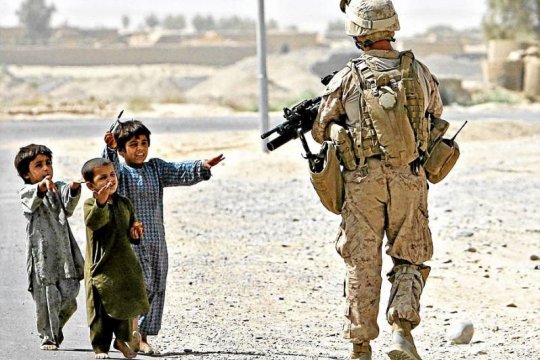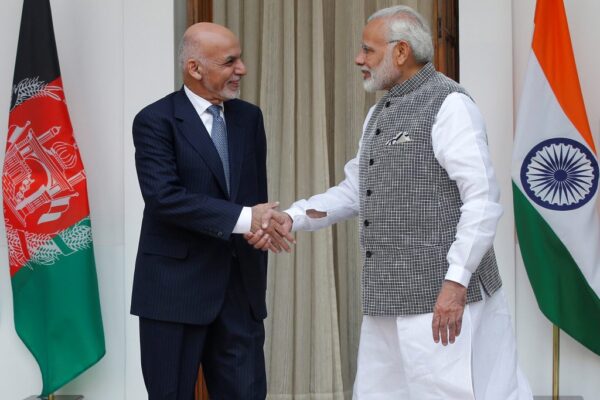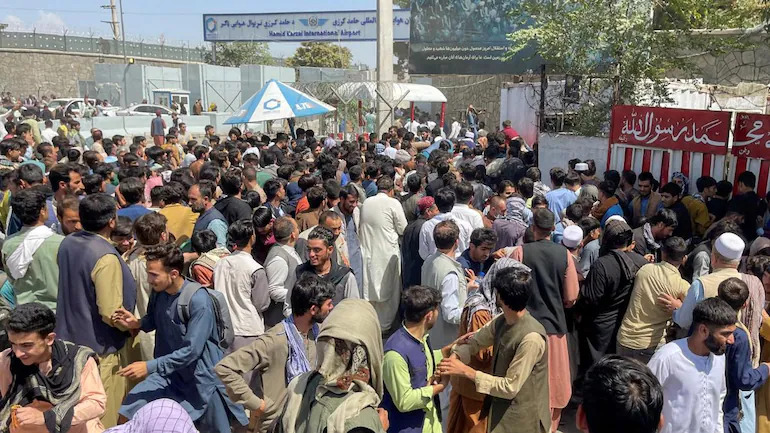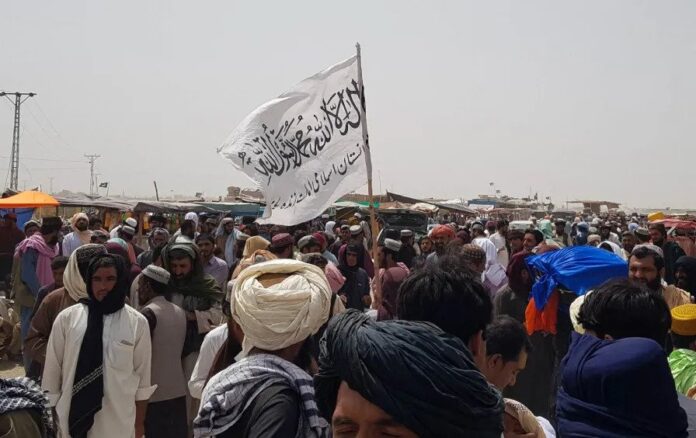With the withdrawal of American forces in Afghanistan, the geopolitical balance is shifting. Many are concerned about the implications of a Taliban-ruled Afghanistan on India.
India currently lacks leadership that can garner its military interest. India has withdrawn and has violently taken its fears out on the people of Kashmir. The militarization of Kashmir in 2016 and the Abrogation of Article 370 in 2019 show the cracks in India’s foreign policy.
The Invasion of Afghanistan
In 2001, following the bombing of the American World Trade Centre (9/11 bombing), the United States invaded Afghanistan. Its stated purpose was to wipe out the Taliban for engineering the bombing.
Until the fall of the PDPA government in 1992, India had good relations with each state of Afghanistan. Losing the state of Afghanistan meant India would have one less ally in the world. Civil war or Islamic fundamentalist forces taking were concerns. India had an interest in Afghanistan being stable and non-aligned with Pakistan.
The Taliban rose in Afghanistan with support from within Pakistan and Saudi Arabia, both Western allies. Early on, the Taliban was supported by the US in part to repel Soviet influence and prevent it from becoming an ally to either Iran, China, or Russia.

To counter Pakistan, the Indian government had worked with warlords in Northern Afghanistan. These warlords kept control in areas bordering India Occupied Kashmir and prevented the Taliban from reaching there.
After 2001, the Taliban turned from being a soft-ally to Western powers, to a hard enemy. The American-led NATO declared war on the Taliban for nearly 20 years.
Also read: Emergence of Islamic Emirates of Afghanistan and the Cold War 2.0
In Afghanistan, NATO tried to set up a new government composed of the Taliban’s enemies, including those who worked with India. Radical left groups would still be banned, but some liberal parties and hardline Islamic fundamentalist parties would form the government.
All of them were opposed to the Taliban, but many of them had members with a history of violent rule. It was hard to see how a parliamentary republic would be formed under the rule of former warlords.
Internationally, the “War on Terror” and the continued occupation of Afghanistan helped keep the legitimacy of NATO. NATO claimed to replace the United Nation’s role as the international peacekeepers and therefore prevented international tribunals from taking over the role of state-building. Afghanistan was a NATO project.

NATO’s presence lost support over the years. American military presence in the Middle East kept expanding. Resentment by the American people mounted, as their economy began to lag. Lack of resolution, regarding the fears stoked in the aftermath of the 9-11 bombing, left many Americans feeling betrayed.
American Evacuation
The former President, Donald Trump, an aggressive public personality, won the American Presidency on a platform of “America first.” This meant isolationism, trade protectionism, and military withdrawal. From 2016, India realized the loss of its major source of support in Afghanistan. America’s absence meant Afghanistan would be left between Russia, China, Pakistan, Iran, and Saudi Arabia.
Afghanistan could be caught in a proxy war between Saudi Arabia, Iran, and Pakistan. If America withdrew, they may continue devolving Afghanistan back to civil war through insurgencies to keep it from being a base for either China, Iran, or Russia.
Also read: US Afghanistan Policy Heavily Criticised by World Leaders
In 2019, Donald Trump announced a withdrawal of America from Afghanistan. India was not able to assert itself in the international arena to build alternatives. Part of the problem is that, even internationally, Narendra Modi kept downplaying the role of previous governments.

He tried to project himself as the beginning and end of India. The previous Indian government invested over Rs. 50,000 crore in Afghanistan to develop business ties with the country. Modi continued this trend, but could not be a strong leader to safeguard India’s interest.
At the beginning of 2019, Trump belittled India’s contribution, saying that India’s role amounted to funding a library. He added that the library might not even be used. Modi was stuck. He could not insult a stronger personality. He could not appropriate India’s efforts before 2014 internationally. He could not continue unilaterally. India lost its ability to negotiate in Afghanistan’s reconstruction.
As American troops began to withdraw, it became clear that the Taliban would reclaim land, and become a presence in the region once more. India will now have to see the new Afghanistani state become a strong ally to Pakistan.

The state has not been open about its weakness to the people. Indian delegations have been meeting with Taliban officials since as far back as June 2021. Trade with Afghanistan is expected to drop. Very few Indians have a clear idea about what India’s approach to Afghanistan will be beyond rhetoric.



























